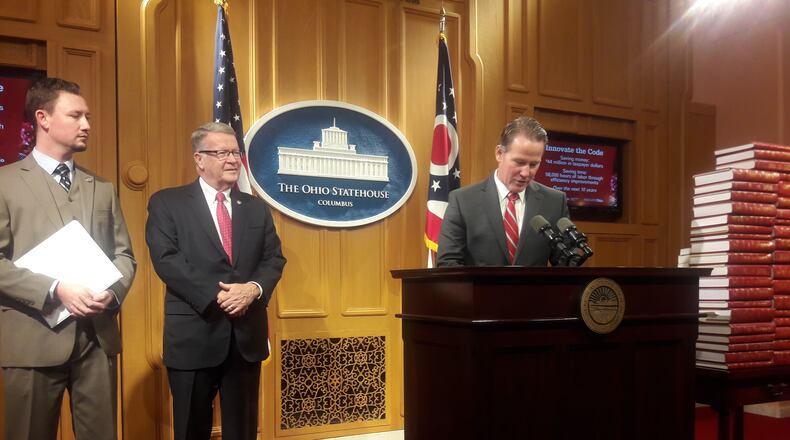An artificial intelligence tool, paid for by $500,000 from the InnovateOhio budget, flagged provisions in the Ohio Revised Code and Ohio Administrative Code as outdated, conflicting or redundant. Then staff at the relevant state agencies verified that those items could be dispensed with, Husted said.
The bill will start with a dozen items but is expected to grow, Husted said.
“We think it’ll be around 126 after we get it refined, that will not only save money but also save time,” he said.
Proposed changes to the code include eliminating nearly 50 instances in which a state agency required contact by mail; nearly 40 cases in which in-person interaction is required; and more than 20 deletions of outdated terminology such as “telefax” or “telegram.”
The most significant change will be allowing the Ohio Department of Taxation to send official emails instead of requiring letters, expected to save $3.4 million per year.
“That’s the biggest one out of the box,” Husted said. The remaining million is the sum of a few thousand in savings here and there in various departments, he said.
People who lack internet access could still get paper communications, Husted said, but the update is another reason for the state to expand broadband service.
Husted said he doesn’t think the changes being proposed will lead to more online fraud, in which scammers impersonate government officials. But Ohio is working on tightening personal privacy laws and other ways to deal with cybercrime, he said.
State Sen. Steve Wilson, R-Maineville, and state Rep. Thomas Hall, R-Madison Twp., will soon introduce a bill to make those revisions.
“This is one of the reasons I came up here (to Columbus),” Wilson said. “We need to get the government out of the way, in many instances, of the private sector; and we need to take the innovations and advancements in the private sector and allow for our government agencies to be efficient.”
Hall said he promised as a new legislator to promote modernization of Ohio government, and this is one of several such initiatives he’s promoting.
The Buckeye Institute and Americans for Prosperity supported the project, Husted said. Both of those conservative/libertarian groups released statements Tuesday applauding the proposed legislation.
About the Author

